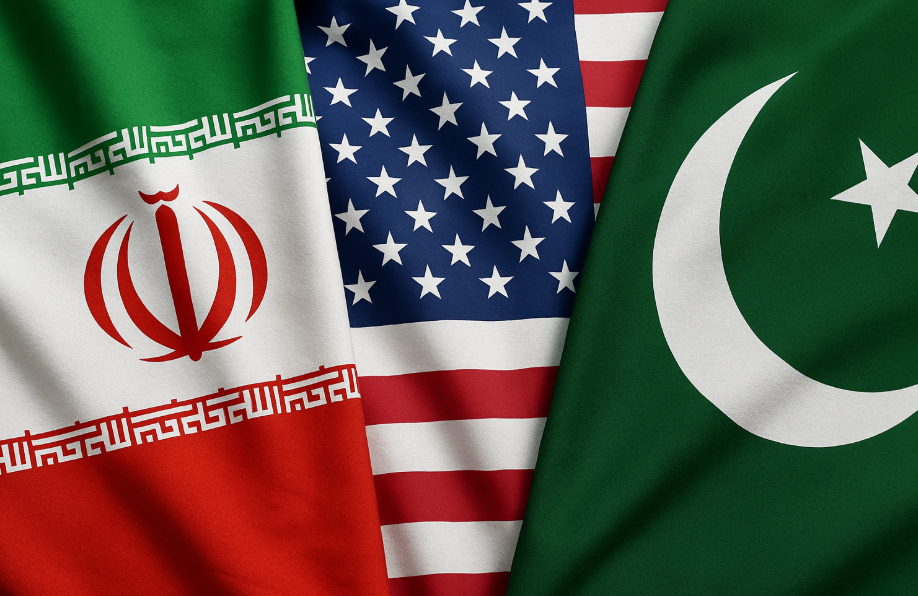
The ongoing conflict between Iran and Israel has not only heightened regional tensions but has also drawn the attention of global powers. While Iran continues to reiterate that it stands firm against Israeli aggression, recent developments have exposed deeper diplomatic cracks—especially concerning Pakistan's position.
In a strongly worded statement, Mohammad Javed Hosseini, the Deputy Chief of the Iranian Mission in India, warned all international players against interfering in the Iran-Israel conflict as third parties. According to Hosseini, any such intervention would only escalate the situation further. "We have warned all the parties and all the players — international players — that they should not enter into our conflict as a third party to support or help Israel because if they wanted this conflict to be de-escalated, they should go on the right way. This is the wrong way," Hosseini stated firmly.
Hosseini emphasized that Iran possesses significant undisclosed capabilities reserved for future contingencies. "The capacities are still unknown, and it is better not to put the region at risk," he added, hinting at the devastating consequences that could follow if foreign powers intervened inappropriately.
At the center of this diplomatic drama is Pakistan, whose military leadership has recently come under scrutiny. While Iran has long claimed that Pakistan stands with it, the reality appears increasingly complex. Pakistan's Chief of Army Staff, Asim Munir, recently traveled to the United States, where he reportedly held high-level meetings, including one with U.S. President Donald Trump. During these meetings, Pakistan appeared to adopt a submissive tone, leading many to believe that Islamabad may be leaning towards the American-Israeli camp rather than supporting Iran outright.
This shift has not gone unnoticed by Iran. In response to Pakistan's growing engagement with the U.S., Hosseini made it clear that Tehran expects Islamabad to stand against Israel’s aggression. "I hope that Pakistan will not allow its territory to be used by America against Iran and will stand with us against Israel’s aggression," he said. However, his comments also carried a veiled threat: if Pakistan yields to American pressure and allows its territory to be used for operations against Iran, Tehran would respond strongly.
The situation becomes even more delicate as the U.S. reportedly seeks Pakistani assistance in the ongoing Iran-Israel conflict. This development has alarmed Tehran, which fears that a growing American footprint in the region could escalate the conflict into a wider war. Hosseini reiterated, "If third parties interfere, and if America uses Pakistan's land for its interests against Iran, there will be serious consequences, not just for the involved nations but for the entire region."
Iran’s message to the United States was equally forceful. Hosseini warned that any direct or indirect American intervention in the conflict could severely destabilize the Middle East, leading to unpredictable consequences that no global power would be able to control. "If they want the conflict to de-escalate, they must find the right way to resolve it. Otherwise, there would be no consequences except that the whole region will be engulfed," Hosseini warned.
The series of events has laid bare the growing complexities in regional geopolitics. As Iran and Israel lock horns, the roles of peripheral players like Pakistan become crucial. Pakistan finds itself trapped between its historical ties with the Islamic world and its strategic relationship with the United States. The recent high-level meetings between Pakistani officials and American leadership, especially President Trump, have only deepened suspicions in Tehran.
For now, both Iran and Israel continue to posture aggressively, with neither side willing to back down. The international community watches with bated breath, aware that even a small misstep by any party could ignite a far larger and more devastating war. As tensions simmer, Iran’s latest warning serves as a stark reminder: any third-party involvement could push the Middle East into uncharted and dangerous territory.
Disclaimer:
This article is based on publicly available reports and official statements. The views expressed are for informational purposes only and do not reflect any political stance or endorsement. Readers are advised to follow official sources for real-time updates on ongoing geopolitical developments.




